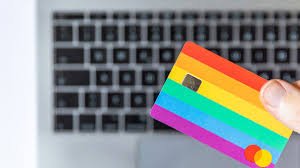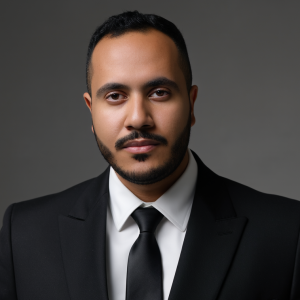Dubai dazzles — luxury cars, skyline views, endless brunches, and designer brands everywhere you look. But behind the glamour lies a very real financial pressure, especially for expats trying to build a future in a high-cost city. Many come for better salaries but end up with empty savings and credit card debt. If you want to stay financially grounded in Dubai, it takes more than earning well — it requires living smart.
Let’s explore practical and sustainable ways to manage your finances, live well, and still build a future in one of the most expensive cities in the world.
Know Your Real Cost of Living

First things first: what does your life really cost?
Break down your expenses:

- Rent (and utilities if not included)
- Transportation (car, fuel, metro, parking)
- Groceries and food
- Health insurance
- Phone and internet bills
- Debt payments (loans or credit cards)
- Leisure (dining, trips, shopping)
This honest overview will reveal if your lifestyle matches your income — or if it’s time to realign.

Create a Monthly Budget — and Stick to It
Budgeting isn’t just for people who are “bad with money.” It’s a tool for anyone who wants to stay intentional. Once you know your fixed and flexible expenses, assign a monthly limit to each.
Apps like YNAB, PocketGuard, or even a simple Excel sheet can help you stay on track.
Try the 50-30-20 rule:
- 50% on needs (housing, food, transport)
- 30% on wants (entertainment, shopping)
- 20% on savings and debt repayment
Adjust the ratio based on your goals — but make sure you’re saving something.
Don’t Try to Keep Up With the Glamorous Crowd
In Dubai, lifestyle inflation is real. It’s easy to feel pressure to dine at the trendiest spots, take luxury staycations, or shop high-end brands. But chasing appearances will cost you your peace — and your savings.
Remember: Most people are financing their lifestyle with credit. Don’t let someone’s Instagram make you question your own smart choices.
Negotiate Your Rent and Bills
Dubai’s rental market fluctuates — and sometimes landlords are open to negotiation, especially during contract renewals. Do your research on current market rates in your area. If your rent is above average, don’t be afraid to negotiate.
Also, compare providers for:
- Internet and mobile plans
- Car insurance
- Streaming subscriptions
A few small changes can save you thousands over the year.
Start an Emergency Fund
If you don’t have an emergency fund, make it your priority. Aim for 3–6 months’ worth of essential expenses saved in a separate account.
This will give you peace of mind in case of:
- Job loss
- Medical emergencies
- Unexpected travel or relocation
In a city like Dubai, where jobs can change quickly, having that financial cushion is priceless.
Avoid Unnecessary Debt
Credit cards in Dubai are easy to get — and even easier to misuse. The interest rates are high, and one bad month can lead to years of debt.
Use credit only if you’re disciplined enough to pay it off in full every month. Avoid “buy now, pay later” traps unless you’ve budgeted for the purchase.
Debt should be a tool — not a lifestyle.

Find Free or Low-Cost Enjoyment
Fun doesn’t have to be expensive. Dubai offers plenty of budget-friendly options:
- Public beaches and parks
- Free cultural events or art galleries
- Affordable eats in Deira, Karama, or Al Nahda
- Hiking or desert drives in the cooler months
Balance your outings — mix in low-cost fun with the occasional splurge.
Explore Passive Income or Freelance Work
If your job doesn’t cover all your goals, explore side gigs or online income. Many expats in Dubai freelance in writing, consulting, photography, tutoring, or virtual assistance.
Just make sure to check the legality and get the right permits if needed. Extra income can help you save or invest without cutting into your lifestyle too much.
Understand End of Service Benefits
Many employees in the UAE receive an “end of service” gratuity instead of a pension. Understand how it’s calculated and keep track of it. Don’t rely on it blindly — sometimes it’s not as much as you’d expect.
Complement this with your own retirement savings plan, especially if you plan to move countries in the future.
Build a Saving and Investment Habit
Saving money is great — but don’t just let it sit in your account.
Learn about:
- Fixed deposits
- National bonds
- International investment platforms
- Real estate (only if you’re financially ready)
Work with a certified financial advisor if needed — just avoid commission-based salespeople pushing insurance products disguised as investments.

Track Your Progress Monthly
Once you’ve set financial goals (savings, debt-free, investing, etc.), check in monthly. Adjust your spending, celebrate milestones, and stay committed.
Small habits — like reviewing your budget every Sunday — can keep you financially stable even in a flashy city.
Conclusion: Living Smart Is the New Rich
Dubai may be a land of luxury, but the real flex is being financially grounded in the middle of it all. You don’t need to live in the tallest tower or drive the flashiest car. What you do need is control over your money, peace of mind, and the freedom to choose your path.
So whether you’re new to Dubai or a long-time resident, take charge of your finances — and build a life that’s not just shiny, but secure.
Do follow UAE Stories on Instagram
Bounce Back After a Failed Relationship in Dubai with These Powerful Tips













